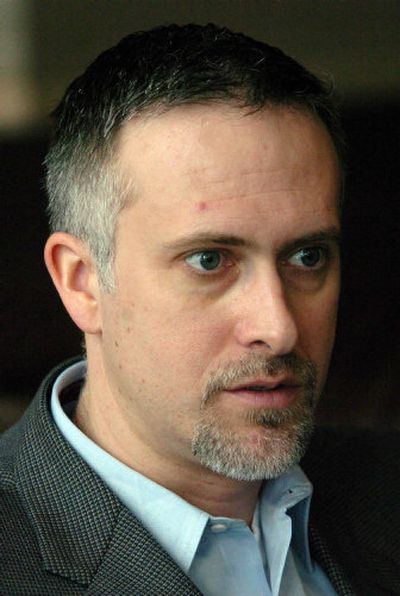GOP learns winning tactics

For 60 North Idaho Republicans, Saturday was a chance to go to school and learn a few things about getting elected.
Those party regulars, most from the five North Idaho counties, gathered for a seven-hour campaign school hosted by the Idaho Republican Party. The goal of the session was basic: teaching candidates and volunteers the nuts and bolts of winning elections.
Idaho voters gave President Bush 68 percent of the popular vote the past two general elections. So why would the Panhandle Republicans bring in two specialists from the Republican National Committee to offer campaign tips?
“Because there’s nowhere else to go to learn how to run for office,” said Julie Chadderdon, the North Idaho regional party chair, who coordinated Saturday’s mini-camp for Republicans at the Coeur d’Alene Resort.
The two key presenters were Cary Evans of Seattle and Marco Nuñez, based at the RNC’s office in Washington, D.C.
They steered clear of talk about regional political issues and partisan campaign tactics and concentrated on the mechanics of setting up a campaign and building a strong team of volunteers.
Evans gives similar one- or three-day campaign classes around the West.
“It’s about planning your campaign, finding volunteers and keeping them energized, how to raise funds, how to deal with the media, how to raise funds, and how to bring out the vote,” Evans said.
Saturday’s session drew about a dozen party volunteers, about a dozen Idaho Republican elected officials, and about 30 men and women now running or considering running for office this year.
The races range from county positions on up to a race for U.S. Congress.
Among them was Keith Johnson, Idaho’s state controller and a Boise Republican who’s announced he’s running to fill the seat of Congressman Butch Otter in the 1st Congressional District. Five other Republicans have announced they’re running for that seat, but Johnson was the only one in Coeur d’Alene on Saturday.
Johnson said the session gave him more information about national resources available through the RNC to Republican candidates.
“There are some great technology tools to help candidates find who are the undecided voters in your area,” Johnson said. To do that, and do other things, the RNC maintains the Voter Vault, a large, detailed electronic database of nearly every U.S. resident and how often they vote.
Johnson said the database can be used to find voters in one’s district who vote seldom or not at all.
“After you identify them, you approach them and explain your positions and try to generate their support,” Johnson said.
Said Evans, “In the end it all comes down to constantly compiling a voter list and finding good volunteers to get out the vote.”
But neither Evans nor Nuñez was eager to reveal specific methods the RNC has identified in reaching voters and ensuring they vote. All Evans said was, “We learned a lot about how to bring out the vote during the last presidential election.”
Volunteers are a key step, and Evans tells candidates in every mini-camp that the way to find them is “any way you can, by word of mouth, by references from other volunteers, whatever it takes.”
Chadderdon, whose mother is state Rep. Marge Chadderdon, R-Coeur d’Alene, explained that the mini-camp was only for invited Republican regulars.
“Why would we make it easy for the Democrats to know what we’re doing?” she said.
Both Evans and Nuñez warned local Republicans not to become complacent. Evans noted that states with rapid growth like Idaho’s can be areas heavily contested by Democrats eager to use new voters to defeat Republicans.
Nuñez, who graduated from Portland State University but now works in Washington, D.C, as Evans’ deputy director, said Republican candidates should not overlook the Hispanic communities in their districts. The demographic changes in some areas of Idaho and Washington show Hispanic voters emerging as a significant voter bloc, Republican leaders have said.
“It’s a group of voters our candidates need to address and make sure we’re reaching at the grass-roots level,” said Nuñez.